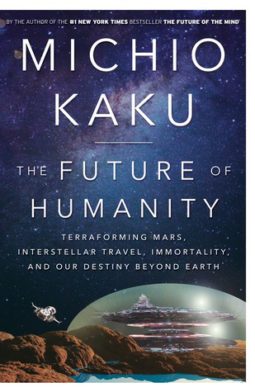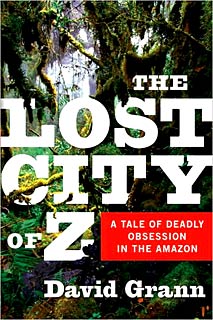This review contains affiliate links, which earn me a small commission when you click and purchase, at no extra cost to you. Thank you for supporting my small business and allowing me to continue providing you a reliable resource for clean book ratings.
Our planet is going to become uninhabitable over the course of coming years (human-induced climate change) or a major event will cause extinction, writes Michio Kaku in The Future of Humanity. Disasters have happened already over the long lifespan of the planet, so “there will be more to come.”
Our best bet to ensure the continuation of our species is to find more places to live among the stars. So Kaku explores the possibilities open to us in the next century and more.
First, he takes readers through how we can leave the earth: space travel. He touches on the brief history of what we’ve been able to do so far and then where we’re headed in the immediate future. Mars is one of the primary goals for government and private entrepreneurs to reach and try to settle. But past that, there are even possibilities in the moons of some more distant planets in the solar system, as well as star systems beyond. Kaku addresses the limitations of our bodies and what kinds of adjustments will need to be made both in where we will live and in our bodies themselves to be able to live away from our home planet.
Once we’ve found viable places to travel to, then there’s the question of how to travel: what kinds of ships we will use and how fast they can get where we need them to go. What kind of power do we already have available and what will we need to develop? Then, how can it be made cost-effective?
Next, Kaku writes about the need for robots that can get the work done in space, and what advances are being made and likely will happen in the near future to enable much of what the plans for space travel will require.
Last, Kaku addresses what kinds of changes may happen in the more distant future to really allow humans to go to distant planets. Our species may need to achieve the long-sought dream of immortality so we can really travel as far as we may need to go. Or we may become more than human by incorporating technology into our bodies (or even abandoning them altogether as we explore by sending out our consciousness — and that’s not just a sci-fi notion; the basics of how we would do that are being worked on now, Kaku tells us). The author also looks at the possibilities of what other kinds of life may be out there, if we run into other civilizations, or if they find us.
This book really goes into all kinds of options, all kinds of fascinating science. It addresses quantum physics in a number of contexts, as it applies to various topics in the course of the book. String theory makes an appearance near the end, and what the multiverse may mean to our species millennia and even millions of years in the future.
If you’re a science junkie, whether it’s astronomy, space travel, robotics, quantum physics or technology, The Future of Humanity is an absolute treat. I was fascinated by so much of what Kaku discussed. The big picture of what he and other scientists envision for the future of humanity is thought-provoking, and each facet of what it will take to keep our species living on past extinction events and venturing out into new realms had me riveted. Kaku’s writing is accessible and understandable for the lay reader and opens up new worlds of thought. As I read, my mind was just exploding with the information and excitement, and I ended up reading so many passages aloud to my husband that he probably is happy I’m finished with the book.
So cool.
Rated: None.
Click here to purchase your copy of The Future of Humanity on Amazon.
*I received an ARC of this book in exchange for my honest review.




